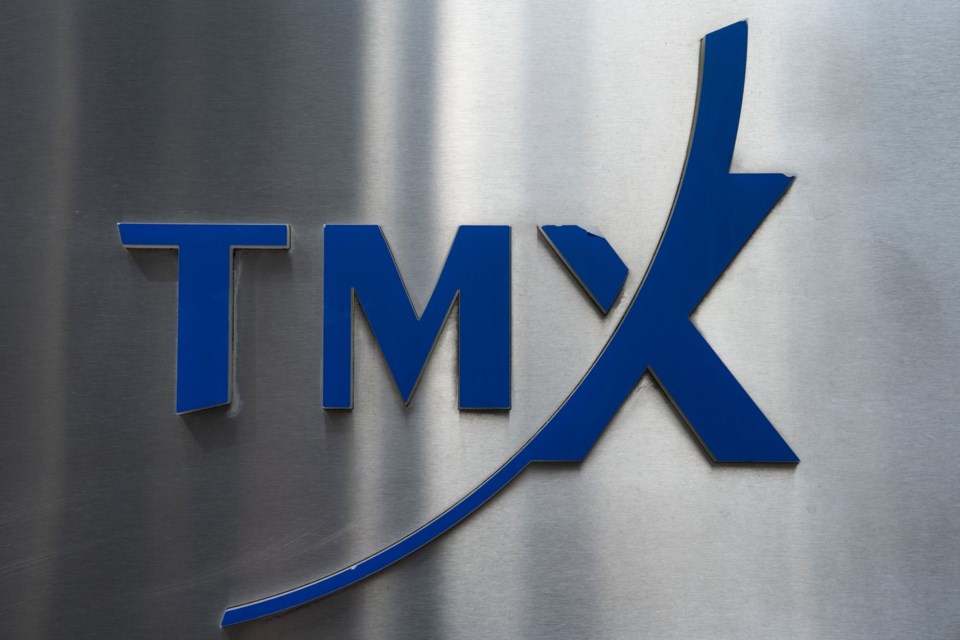TORONTO — Canada's main stock index rose Tuesday, helped by strength in the energy sector as the prices for oil and natural gas climbed, while U.S. stock markets eked out gains.
The S&P/TSX composite index closed up 165.61 points at 25,648.84 after a holiday Monday on both sides of the border.
In New York, the Dow Jones industrial average was up 10.26 points at 44,556.34. The S&P 500 index was up 14.95 points at 6,129.58, while the Nasdaq composite was up 14.49 points at 20,041.26.
“I feel that this week we're going to be in a little bit of a holding pattern … because there is real lack of clarity around what these tariffs are actually going to mean for Canada,” said Ilana Schonwetter, investment advisor and portfolio manager at Blueshore Financial.
Canada and the U.S. are in a month-long tariff truce, with a pause on the sweeping tariffs threatened by U.S. President Donald Trump and the retaliatory tariffs announced by Ottawa.
“The biggest thing on everybody’s mind right now really is around tariffs,” Schonwetter said.
“I view it as a zero-sum game. It’s a lose-lose situation,” she said.
One of the biggest concerns in the U.S. is that tariffs will reignite inflation, which still hasn’t fully recovered despite high interest rates.
Last week’s inflation report came in above expectations, and caused uncertainty over whether the U.S. Federal Reserve will cut interest rates at all this year, said Schonwetter.
“That has somewhat turned the sentiment on the U.S. market a little bit bearish, particularly when it comes to the retail investors,” she said.
“I think the next inflation print and GDP output will give us a little bit of a clearer idea as to, do we turn a little bearish, or do we continue on this bullish run?”
In Canada investors are bracing for more of a slowdown, said Schonwetter.
Inflation in January rose to 1.9 per cent, Statistics Canada said Tuesday.
“In Canada, we were pretty certain that we were going to get another rate cut in the March meeting,” said Schonwetter.
But higher inflation and the inflationary risk of a weaker loonie puts the Bank of Canada in a “pickle,” she said.
“Does the Bank of Canada cut and risk inflation going up above two per cent or do they sit still, hold back and wait to see ... the impact of tariffs in Canada as far as economic slowdown is concerned?”
Earnings reports continued trickling on Tuesday. So far earnings in the U.S. have been really good, said Schonwetter — the question is whether that growth will continue throughout the year.
“In Canada, we are definitely far more cautious than in the U.S.,” she said.
“The outcome could be vastly different depending on how some of these things unfold.”
The Canadian dollar traded for 70.46 cents US compared with 70.59 cents US on Friday.
The April crude oil contract was up US$1.12 at US$71.83 per barrel and the March natural gas contract was up 28 cents at US$4.01 per mmBTU.
The April gold contract was up US$48.30 at US$2,949 an ounce and the March copper contract was down seven cents at US$4.59 a pound.
— With files from The Associated Press
This report by The Canadian Press was first published Feb. 18, 2025.
Companies in this story: (TSX:GSPTSE, TSX:CADUSD)
Rosa Saba, The Canadian Press




